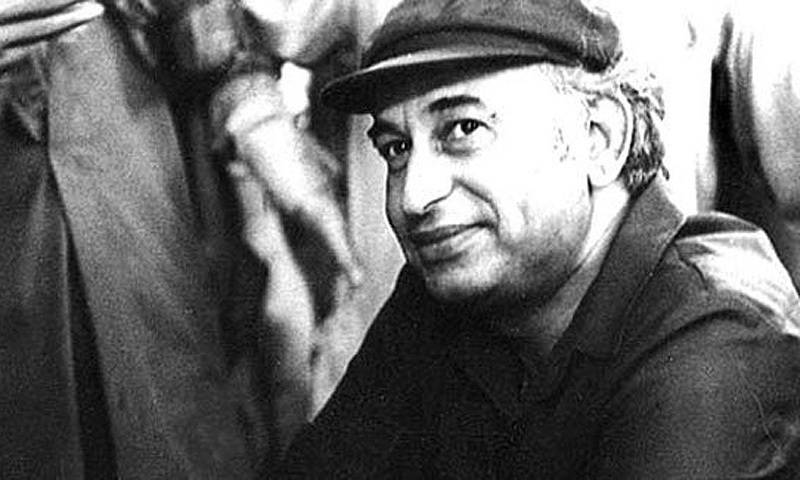
Justice Markandey Katju writes about Zulfikar Ali Bhutto's policies as Prime Minister and the second amendment that was passed during his rule.
I read the article ‘You Zulfiqar Ali Bhutto are to be hanged’ on Naya Daur, and would like to respond.
No doubt Bhutto’s execution was a judicial murder ordered by a pliant judiciary obeying the order of Gen Zia, but should one have any qualms about it or sympathy with Bhutto? He was the man who for his own political benefit threw the tiny Ahmadiya community in Pakistan to the wolves by getting the Second Constitutional Amendment passed in 1974 declaring Ahmadiya as non Muslims, thus paving the way for their terrible subsequent persecution by Gen Zia’s Ordinance XX ( see my article ‘Barbaric persecution of Ahmadiyas in Pakistan’ published in rabwah.net).
This made Pakistan the first and only state which defined who belonged to a particular religion.
Out of the total over 200 million people in Pakistan, Ahmadiyas are only about 5 million i.e. about 2 1/2 % of the population. They are a peaceful community, and yet all kinds of terrible atrocities were committed on them. And what was their fault? That they allegedly regard Mirza Ghulam Ahmed, the 19th century founder of their sect to be a Prophet, an allegation they deny.
But seeing the popular demand of getting Ahmadiyas declared non Muslims, Bhutto got the Second Constitutional Amendment passed, a thoroughly reactionary measure keeping an eye on his own political benefit.
This opened the floodgates to subsequent reactionary steps and atrocities under Gen Zia’s regime e.g. Ordinance XX of 1984 which made it a criminal offence for Ahmadiyas to ‘pose’ to be Muslims, to call their place of worship a mosque, to say azaan, etc. Shias have also been persecuted as a consequence to the Constitutional Amendment.
Should then one shed any tears at Bhutto’s execution? I leave it to the reader to decide.
I read the article ‘You Zulfiqar Ali Bhutto are to be hanged’ on Naya Daur, and would like to respond.
No doubt Bhutto’s execution was a judicial murder ordered by a pliant judiciary obeying the order of Gen Zia, but should one have any qualms about it or sympathy with Bhutto? He was the man who for his own political benefit threw the tiny Ahmadiya community in Pakistan to the wolves by getting the Second Constitutional Amendment passed in 1974 declaring Ahmadiya as non Muslims, thus paving the way for their terrible subsequent persecution by Gen Zia’s Ordinance XX ( see my article ‘Barbaric persecution of Ahmadiyas in Pakistan’ published in rabwah.net).
This made Pakistan the first and only state which defined who belonged to a particular religion.
Out of the total over 200 million people in Pakistan, Ahmadiyas are only about 5 million i.e. about 2 1/2 % of the population. They are a peaceful community, and yet all kinds of terrible atrocities were committed on them. And what was their fault? That they allegedly regard Mirza Ghulam Ahmed, the 19th century founder of their sect to be a Prophet, an allegation they deny.
But seeing the popular demand of getting Ahmadiyas declared non Muslims, Bhutto got the Second Constitutional Amendment passed, a thoroughly reactionary measure keeping an eye on his own political benefit.
This opened the floodgates to subsequent reactionary steps and atrocities under Gen Zia’s regime e.g. Ordinance XX of 1984 which made it a criminal offence for Ahmadiyas to ‘pose’ to be Muslims, to call their place of worship a mosque, to say azaan, etc. Shias have also been persecuted as a consequence to the Constitutional Amendment.
Should then one shed any tears at Bhutto’s execution? I leave it to the reader to decide.
